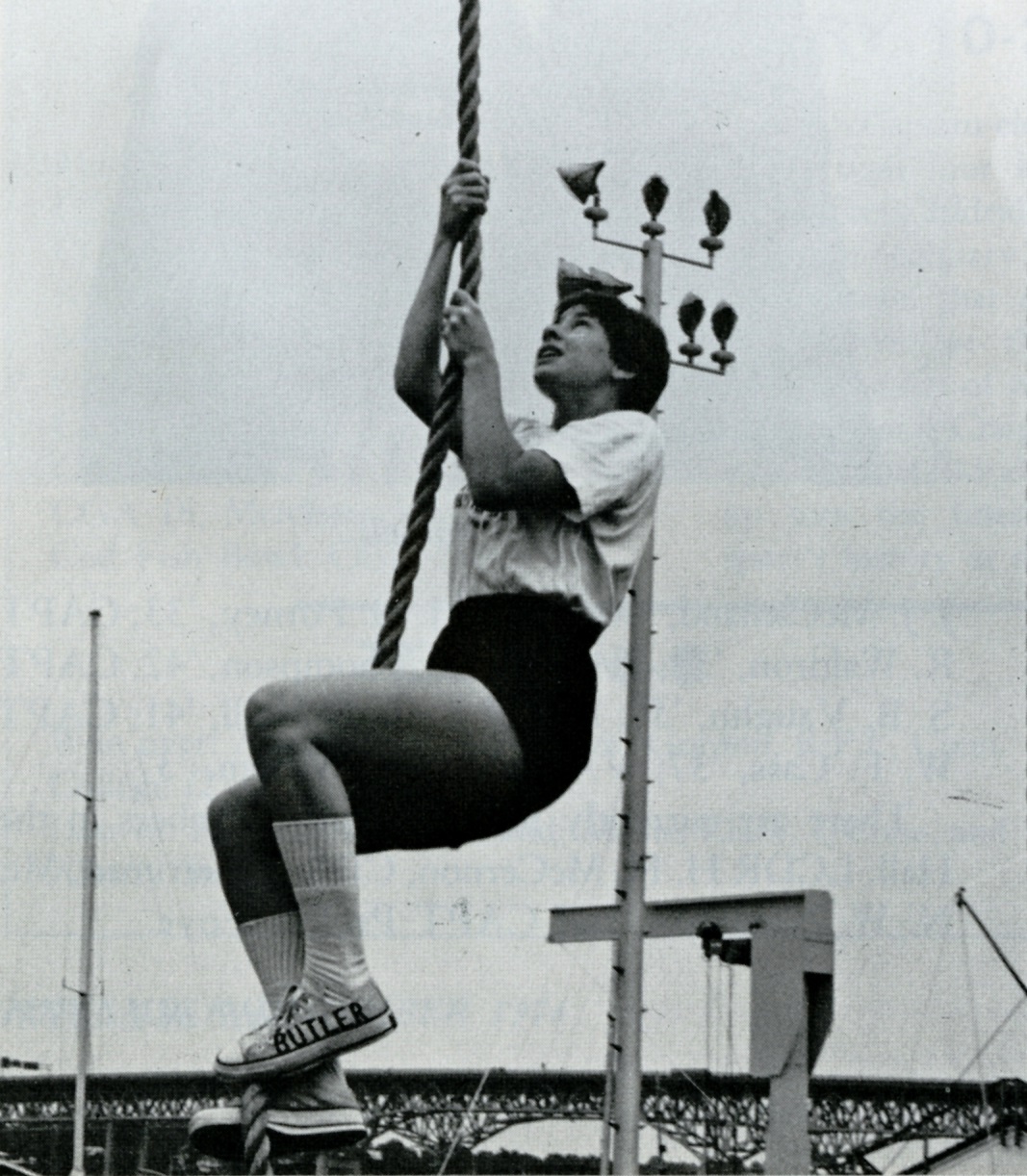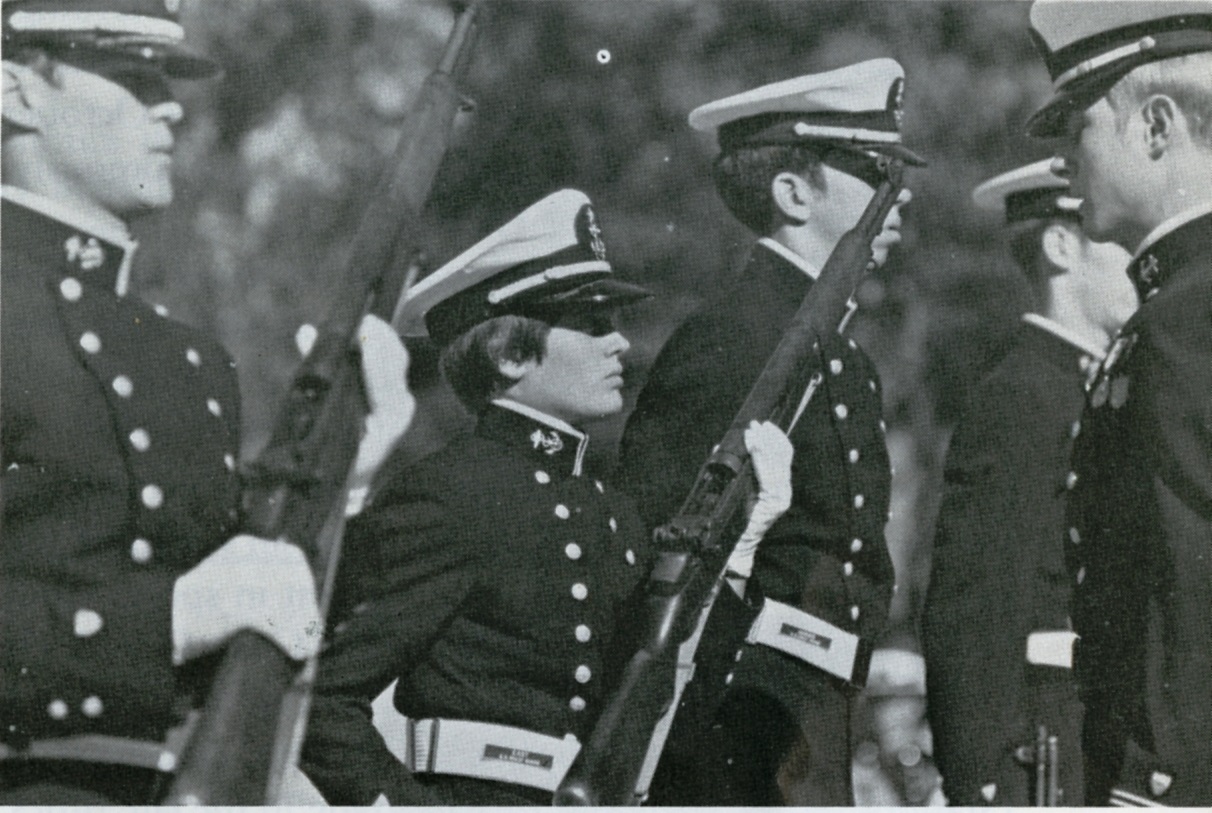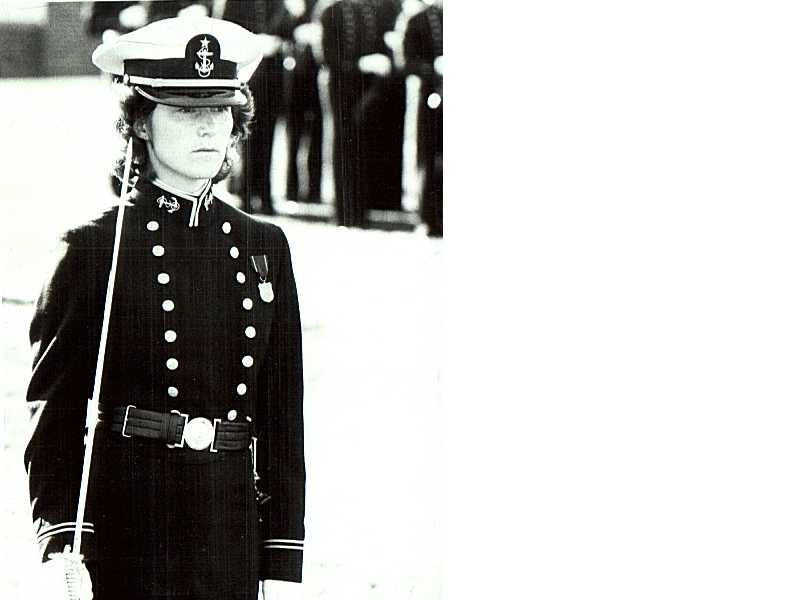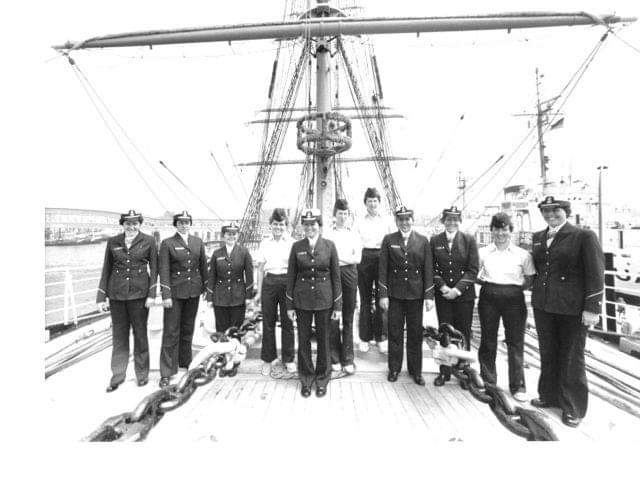"Framed as heroes, we are often labeled as courageous by others. To most of us, it felt like survival. And we persevered as only the young can--with verve and humor"
Cmdr. Kathy Hamblett (retired), Coast Guard Academy Class of 1980
In recognition of 40 years of women graduating from the United States Coast Guard Academy, the following letter from the Class of 1980 women was read at the virtual graduation ceremony for the Class of 2020 women:
May 20, 2020
To the Women of the Class of 2020
Congratulations on your graduation!
We are Officers, Sisters, Wives, Mothers and Grandmothers who join you in commemorating the 40th anniversary of the graduation of women from the United States Coast Guard Academy. As members of the first class with women, we experienced diverse reactions to our presence, both in opposition and support as we broke ground for generations of women to follow. Since May 1980 over 1,850 women have graduated from the Academy, earned officer commissions, and proudly served our country.
We were referred to as pioneers and trailblazers. We fought and won the good fight alongside our classmates, earning unqualified acceptance and respect within the entire Academy community and in the officer corps. Ensure our legacy is passed along.
Warmest regards and fond wishes as you embark on your career.
The Women of the Class of 1980
| Jean M. Butler |
Linda Johansen |
Monyee Smith |
| Susan K. Donner |
Joanne McCaffrey |
Mary-Lou Southwood |
| Mary Jane East |
Christine Quedens |
Jody Turner |
| Michele Fitzpatrick |
Tami Rose |
Karen Tweed |
| |
Sharon Willis Fijalka |
|
In addition to the letter, ceremony organizers asked the Class of 1980 women for words of wisdom for the Class of 2020 women. This request led me to consider how far away and long ago our graduation took place in Leamy Hall on a rainy day in May. By virtue of alphabetical order, the first woman to cross the stage was Jean Butler. She recalled the sounds of c amera shutters clicking rapidly and simultaneously. She remembered, “It sounded like a cascading waterfall.” Not only was she the first woman in the Class of 1980 to graduate, she was the first woman to graduate from any armed forces service academy. The Air Force, Army, and Navy held graduations in June. After graduation, the 14 of us fanned out across the cutter fleet, often being the first women to serve on board and the firsts in many assignments over our ensuing careers. Many of us retired as captains and commanders. Some of us found further success in academics, research, engineering, business and veterinary medicine with interests as diverse as the individuals we have always been.
amera shutters clicking rapidly and simultaneously. She remembered, “It sounded like a cascading waterfall.” Not only was she the first woman in the Class of 1980 to graduate, she was the first woman to graduate from any armed forces service academy. The Air Force, Army, and Navy held graduations in June. After graduation, the 14 of us fanned out across the cutter fleet, often being the first women to serve on board and the firsts in many assignments over our ensuing careers. Many of us retired as captains and commanders. Some of us found further success in academics, research, engineering, business and veterinary medicine with interests as diverse as the individuals we have always been.
The Coast Guard is credited with accepting women to the Academy before being forced to by legislation. Admiral Owen Siler, Commandant, is recognized as starting it all 45 years ago on August 11, 1975, when a Transportation Department press releas e noted that, “Admiral Siler said his decision to admit women to the Academy was based on the many contributions he expected women to make in the peace-time missions of the Coast Guard.” Siler went on to state that “current statutes do not bar the admission of women to the Coast Guard Academy and that action by Congress will not be required. This decision is also in keeping with the strong commitment of the leadership of the Department of Transportation to assure equal rights for women.”
e noted that, “Admiral Siler said his decision to admit women to the Academy was based on the many contributions he expected women to make in the peace-time missions of the Coast Guard.” Siler went on to state that “current statutes do not bar the admission of women to the Coast Guard Academy and that action by Congress will not be required. This decision is also in keeping with the strong commitment of the leadership of the Department of Transportation to assure equal rights for women.”
But it was another man who made the crucial difference. William Thaddeus Coleman, Jr., a distinguished attorney and judge, serving as the fourth Secretary of Transportation was the second African American to serve in the United States Cabinet. He served pivotal roles in significant civil rights cases as an attorney before becoming Transportation Secretary. While the Coast Guard had previously decided not to admit women to the Academy, Coleman asked the Commandant, “Admiral, are there any really valid reasons why women should be kept out of the Coast Guard Academy?” Siler replied in the negative. Coleman then asked, “Do we have to wait for Congress to act upon this?” Again, Admiral Siler responded in the negative. Coleman’s adept handling of the situation allowed the Commandant to shine.
man who made the crucial difference. William Thaddeus Coleman, Jr., a distinguished attorney and judge, serving as the fourth Secretary of Transportation was the second African American to serve in the United States Cabinet. He served pivotal roles in significant civil rights cases as an attorney before becoming Transportation Secretary. While the Coast Guard had previously decided not to admit women to the Academy, Coleman asked the Commandant, “Admiral, are there any really valid reasons why women should be kept out of the Coast Guard Academy?” Siler replied in the negative. Coleman then asked, “Do we have to wait for Congress to act upon this?” Again, Admiral Siler responded in the negative. Coleman’s adept handling of the situation allowed the Commandant to shine.
This backstory was something I learned years later. As one of the women entering the Academy in 1976, I knew women were already in the Coast Guard. Beginning with female lighthouse keepers and World War II SPARS, followed by women graduating officer candidate school and being commissioned as ensigns in 1973, it appeared women had been in the Coast Guard in some manner all along. Opening the Academy to women seemed a natural progression—how hard could it be? When I inquired about an application, I received a warm, encouraging letter. As an accepted candidate, I received another letter, professional and equally promising. Given this positive start, it appeared the 38 women accepted into the Academy would be as welcome as the men. But that’s not what happened.
For a number of cadets and staff, having women at the Academy was an experiment--one they were determined to help fail. Thankfully, a few were more open, providing respite and encouragement. Support came from chaplains, to cadet activity leaders, to faculty. Most of all, we garnered  support from classmates and tackled challenges together--beginning on the first day. We were issued dungarees that needed hemming and the cadre (cadets two years our senior tasked with our indoctrination) yelled it had to be done before the swearing-in ceremony. This was meant to be a stress test, but most women of my generation possessed sewing skills courtesy of required home economics courses in high school. Much to the irritation of the cadre, my roommate and I easily hemmed our dungarees and those of several male classmates before the cadre rushed us outside to practice marching. That first day, unsewn dungarees were held up with tape and staples. But going forward, sewing skills were bartered for shoe shining or rifle cleaning. We learned teamwork, perhaps not in the way our cadre intended, but we learned it all the same.
support from classmates and tackled challenges together--beginning on the first day. We were issued dungarees that needed hemming and the cadre (cadets two years our senior tasked with our indoctrination) yelled it had to be done before the swearing-in ceremony. This was meant to be a stress test, but most women of my generation possessed sewing skills courtesy of required home economics courses in high school. Much to the irritation of the cadre, my roommate and I easily hemmed our dungarees and those of several male classmates before the cadre rushed us outside to practice marching. That first day, unsewn dungarees were held up with tape and staples. But going forward, sewing skills were bartered for shoe shining or rifle cleaning. We learned teamwork, perhaps not in the way our cadre intended, but we learned it all the same.
Our class motto—Old Traditions, New Horizons—says it all. We would honor traditions, but we would forge a new path as well. That new path included dealing with issues prior classes had not. As a class, we endured intense media scrutiny with press dogging our steps during Swab Summer. In more than one instance, camerame n jumped out from behind bushes to
n jumped out from behind bushes to snap our photographs as we marched to and from Chase Hall. Once the academic semester started, individual women were pulled out of class for interviews, often at the last minute. We were not trained in conducting interviews so it was no surprise when several women were misrepresented. We learned the media could not be trusted with the nuances of our stories and even a hint that the women were not thriving sent repercussions rippling through the Corps of Cadets, to our detriment. Consequently, we became masters at hiding certain realities from others, and even from ourselves. Our class determined that both male and female cadets would attend scheduled interviews or none at all. There were many questions. The tangible and often humorous topics concerning bathroom facilities, uniforms, sports, and haircuts were easier to talk about. They were temporary obstacles solved over time. By far, the most stubborn obstacles remained deeply entrenched attitudes. Nevertheless, facing these hurdles made us stronger.
snap our photographs as we marched to and from Chase Hall. Once the academic semester started, individual women were pulled out of class for interviews, often at the last minute. We were not trained in conducting interviews so it was no surprise when several women were misrepresented. We learned the media could not be trusted with the nuances of our stories and even a hint that the women were not thriving sent repercussions rippling through the Corps of Cadets, to our detriment. Consequently, we became masters at hiding certain realities from others, and even from ourselves. Our class determined that both male and female cadets would attend scheduled interviews or none at all. There were many questions. The tangible and often humorous topics concerning bathroom facilities, uniforms, sports, and haircuts were easier to talk about. They were temporary obstacles solved over time. By far, the most stubborn obstacles remained deeply entrenched attitudes. Nevertheless, facing these hurdles made us stronger.
 From the time we entered to the time we graduated, we were engulfed in an expectation of failure, and discounted in ways bot
From the time we entered to the time we graduated, we were engulfed in an expectation of failure, and discounted in ways bot h overt and subtle. At the same time, we were surrounded by the largest group of funny, creative, kind, and intelligent young people in one place. The dynamic was an adventure and we walked both paths.
h overt and subtle. At the same time, we were surrounded by the largest group of funny, creative, kind, and intelligent young people in one place. The dynamic was an adventure and we walked both paths.
We each had to find our own toeholds out of that quagmire of low expectations and psychological warfare in all its forms. Father Norman Ricard, U.S. Navy chaplain, provided one early toehold for me. Humor. His laughter and perspective helped me see the humor in a lot of situations. Other toeholds followed. Framed as heroes, we are often labeled as courageous by others. To most of us, it felt like survival. And we persevered as only the young can—with verve and humor.
Looking back, I reflect on how quickly one’s life can become history. It was 20 years ago that the Women of 1980 were invited to celebrate the 20-year anniversary of women at the Coast Guard Academy. During that visit, we met cadets who believed women had always attended the Academy. Women at the Academy was normalized; no one gave it a second thought. I found it refreshing. Now, suddenly, we are celebrating 40 years of women at the Academy. And once again, we dust off the memories of our moment in history and celebrate with the newest members of the long blue line.